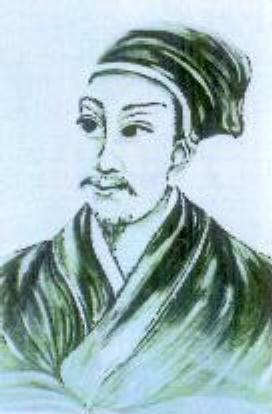 |
 |
 |
 |
 |
 |
 |
 |
 |
 |
 |
 |
 |
 |
 |
|
|
Main
Language
Marriage
Family
Sexuality
Gender
Religion
Arts
Bibliography
|
|
|
|
Confucianism |
|
|
|
|
|
Confucianism is a major system of thought in China, developed from the teachings of the Chinese philosopher Confucius and his disciples, and concerned with the principles of good conduct, practical wisdom, and proper social relationships. Confucianism has influenced the Chinese attitude toward life, set the patters of living and standards of social value, and provided the background for Chinese political theories and institutions. Confucianism, major system of thought in China, developed from the teachings of Confucius and his disciples, and concerned with the principles of good conduct, practical wisdom, and proper social relationships. |
|
|
|
 |
|
|
|
|
|
|
|
www.crystalinks.com |
|
|
|
|
|
|
|
|
|
The most prominent figure of this educated elite was a man named Kong Qiu (551-479 BCE), usually referred to as Master Kong (Kong-fu zi or Kongzi). In the West, Kongzi is called Confucius, a name given him by Jesuit missionaries in the sixteenth century. Kongzi was born in the Watch Tower (Queli) district of Qufu, then the capital of the state of Lu of the Zhou kingdom. Kongzi was the son of Shuliang He, who, according to some sources, was a descendant of a prestigious lesser branch of a ducal lineage of the neighboring state of Song. Kongzi was raised by his mother, Yan Zhengzai, after his father died before he was three. |
|
|
|
|
|
Confucius (551B.C. - 479B.C.) is regarded as a great philosopher and a great sage of China. For more than 2,000 years, the ideas of Confucius have influenced Chinese culture, which in turn sculpted the world-view of neighboring countries such as Korea, Japan and Southeast Asia. |
|
|
|
|
|
Confucius was not a religious leader but a philosopher, moralist, and political thinker. His influence on all of East Asia has been profound and enduring; no other single person has ever had such an effect on the culture of so many people.
The books that Confucius wrote or inspired became the basis of Chinese literature, political philosophy, and education for centuries. His life was dedicated to government and social reform, and the principles he taught shaped the entire governmental administrative system and the tests for admission to the vast Chinese bureaucracy. His emphasis on learning made merit, instead of social class, the basis for attaining position and promotion in service to the emperors.
In his lifetime, Confucius was chiefly a teacher, though later in life he was appointed a provincial governor. After threats from a neighboring province, he went into voluntary exile for 13 years and returned home at age 69. He died three years later. |
|
|
|
|
|
Back to Religion |
|
|
|
